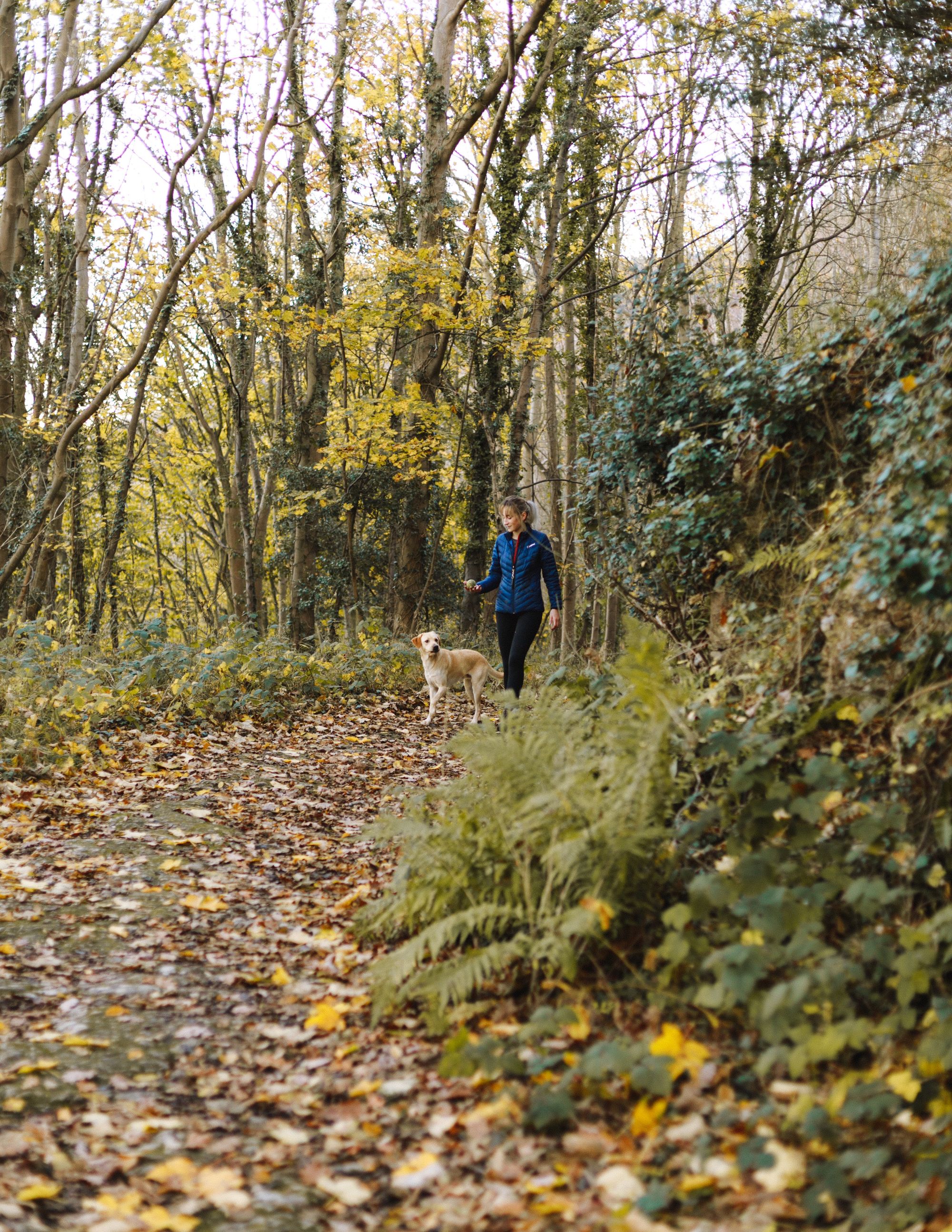Whether ambling through a forest, climbing a mountain trail, or sauntering along a river bank, there’s nothing quite like walking in nature. But why do we enjoy it as much as we do? Why do the sights and sounds of organic life allow us to feel happier, renewed, and, for lack of a better word, alive?
Many of us live within the confines of cities where metal, concrete, and glass comprise our habitat. Walking in nature reminds us we are just as much a part of the natural world as plants, animals, and insects. Today, science has been catching up to what humans have always felt intuitively: that walking in nature is extremely beneficial for body and mind.
The benefits of walking in nature

1. It’s free!
Today, everything seems to come with a price tag, but the great thing about nature is you don’t have to dig deep in your pockets to experience it. Sure, there may be a cost for parking or an entry to a reserve, but for the most part, walking in nature is completely free. The more you make use of the green spaces in your area, the sooner you’ll realize paradise is right on your doorstep.
2. Great form of exercise
Who says you need a gym membership? Ask most runners and it's likely they’ll tell you jogging through natural environments is infinitely more fun than using a treadmill. But you don’t have to exert yourself to this degree. After all, walking can be a hugely beneficial exercise—even a leisurely stroll through the woods helps get your blood pumping and muscles working. What’s more, according to this study
"…natural environments may provide some of the best all-round health benefits by increasing physical activity levels with lower levels of perceived exertion, altering physiological functioning including stress reduction, restoring mental fatigue, and improving mood and self-esteem and perceived health."
So, among other things, walking in nature can actually be energizing, allowing you to walk more than you might be able to in urban areas. Time to get off the elliptical machine and explore some green spaces!
3. Reflection, contemplation, and mental rest
According to data from DataReportal, the average American spends over 7 hours looking at a screen each day. This relationship with technology is only a very recent development in human evolution, whereas our connection to nature stretches back to humanity’s origins. Walking in nature serves as a much-needed antidote to our hyperactive lives, allowing us the mental rest we so desperately need.
Sometimes we just need to get away from the hubbub of the modern world. With all the distractions and stimuli we’re bombarded with, walking in nature provides an opportunity for reflection, contemplation, and mental rest.
Within the tranquillity of green spaces, we may find it easier to work through problems and ideas that may have been bugging us. We could even have a eureka moment that wouldn’t have been possible at home. There’s a reason the ancient Greeks founded a school of philosophy dedicated to walking!
4. Promotes mindfulness
What better way to practice your walking meditation than in nature? The colors, sounds, and movement of natural surroundings serve as the perfect aid to mindful walking. The late Buddhist teacher Thich Nhat Hanh was a great proponent of this practice, and his guidance is invaluable:
"Walking meditation unites our body and our mind. We combine our breathing with our steps. When we breathe in, we may take two or three steps. When we breathe out, we may take three, four, or five steps. We pay attention to what is comfortable for our body."
Science is also confirming what Buddhists like the great Thai teacher knew intuitively. This systematic review and meta-analysis revealed that:
"...nature-based mindfulness has had a positive effect on psychological, physical, and social conditions. Furthermore, nature-based mindfulness is moderately superior to mindfulness conducted in non-natural settings."
So let your senses come alive, feel part of the environment, and let the rise and fall of each step carry you towards a more mindful existence.
5. Boosts immune system and prevents disease
Believe it or not, exposure to nature has been shown to improve immune function. Plants emit airborne chemicals called phytoncides to protect themselves from insects—these have antifungal and antibacterial qualities that help them fight disease.
When we breathe in fresh air we also breathe in phytoncides, and our bodies respond by increasing the activity and number of specific white blood cells called “natural killer cells”, or “NK’. These cells kill tumor and virus-infected cells in our bodies. One study from 2010 explored the effects of Japanese forest bathing trips on immune function. It concluded that:
"Phytoncides released from trees and the decreased production of stress hormones may partially contribute to the increased NK activity…forest bathing trips may have a preventive effect on cancer generation and development."
Okay, going for an hour-long walk in nature isn’t exactly a 3-day forest bathing trip! But the science remains valid regardless. As long as you’re around plants that give off phytoncides, you’ll be reaping their healing and prophylactic benefits.

6. Improves mood, cognition, and mental health
Have you ever experienced a lack of focus or concentration at home, then, when immersed in nature, felt your mind sharpen? Or perhaps you felt your low mood lifted by the beauty and serenity of a forest-walk? Well, it's likely what you were experiencing wasn't a trick of the mind. Lisa Nisbet, a psychologist at Trent University in Ontario, Canada points out that:
"There is mounting evidence, from dozens and dozens of researchers, that nature has benefits for both physical and psychological human wellbeing…You can boost your mood just by walking in nature, even in urban nature. And the sense of connection you have with the natural world seems to contribute to happiness even when you’re not physically immersed in nature."
What's more, perhaps counter-intuitively, walking in nature can even give our minds a kick-start. Considering these findings show how just several moments of green can stimulate a weary brain, think what a 30-minute walk could do!
The positive effects nature has on our mental health can't be understated. Gregory Bratman is an assistant professor at the University of Washington. He and his team shared convincing evidence that contact with nature is related to increases in happiness, positive social interactions, decreases in mental distress, and a sense of purpose and meaning in life. How's that for encouragement to shake off the dust and go for a country ramble?

Closing thoughts
There’s a reason nature is one of our “nourishments”; why we incorporated natural sounds in our 3D sound journeys, and why our visualization music was composed with nature walks in mind. Here at Envol, we can’t stress the pleasures and perks of nature enough. Now more than ever, in our technologically obsessed world, we should make use of the many benefits a walk in nature offers.
What’s pertinent about the benefits listed is that many of them are interrelated. Regularly walking in nature isn’t only great for getting in those daily steps, but can work wonders for your health and wellbeing. So, the next time you feel a little low, are dealing with brain fog, or simply need a break from modern life, strap on your hiking boots and immerse yourself in the healing power of the natural world!

Want to explore more health and wellness content? Read some of our other amazing articles below:



